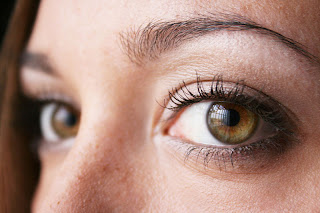When protecting yourself from sunburn, you most likely give
the most attention to your skin. However, it is important that you protect your
entire body from harmful UV rays, including your eyes. According to a survey
from the American Optometric
Association (AOA), nearly 35 percent of Americans admitted that they often
forget to protect their eyes from the sun.
Sunburned eyes can cause both short-term and long-term
effects. Symptoms include redness or irritation, tearing, pain, a gritty
feeling (almost like there's sand in your eyes), blurry vision and temporary loss
of vision (called photokeratitis or snow blindness). Long-term effects can include cataracts,
benign growths on the eye, skin cancer of the eyelids and surrounding tissue,
and possibly macular degeneration.
Recently, CNN newsman Anderson Cooper revealed that he went
blind for 36 hours after the sun’s reflection off of the ocean sunburned his eyes.
During a broadcast of his daytime talk show Anderson
Live, Cooper explained, “I woke up
in the middle of the night and it feels like my eyes are on fire…I think, oh
maybe I have sand in my eyes or something…It turns out I have sunburned my
eyeballs...I went blind for 36 hours.”
According to the AOA, eye damage due to UV rays is
cumulative, so it is never too late to start protecting your eyes. Following are
some tips for getting started:
1.
Wear protective eyewear any time your
eyes are exposed to UV light, even on cloudy days and during winter months.
2.
Look for quality sunglasses that offer
good protection. Sunglasses should block out 99 to 100 percent of both UV-A and
UB-B radiation and screen out 75 to 90 percent of visible light.
3.
Check to make sure your sunglass lenses
are perfectly matched in color and free of distortion and imperfection.
4.
Purchase gray-colored lenses. They
reduce light intensity without altering the color of objects, providing the
most natural color vision.
5.
Don’t forget protection for children
and teenagers. They typically spend more time in the sun than adults.
6.
Schedule comprehensive eye exams.
These simple safety precautions can
determine the fate of your eye health now and later in life. Isn’t your vision
worth it?


No comments:
Post a Comment